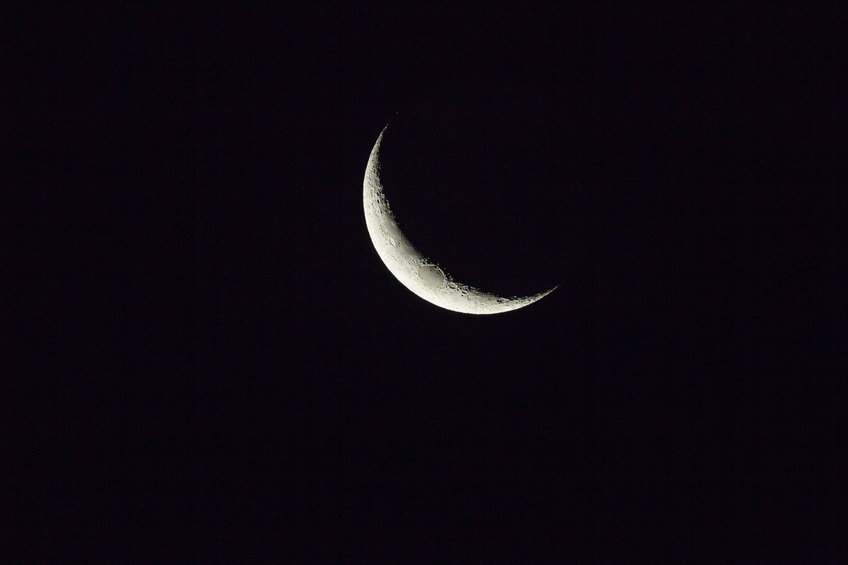
September 30, 2016, by Lindsay Brooke
Black moon on the rise
Julian Onions a Post-Graduate research student in the School of Physics and Astronomy at The University of Nottingham discusses tonight’s Black Moon – the second new moon in the calendar month – or is it?
On Friday 29th September, we have a black moon. I admit I had to look up this term as it is apparently not part of one’s formal astronomy training. It’s also not well defined – and apparently one of those things that crops up from time to time, makes a splash and then fades into insignificance. There are names for all sorts of the moons – we had the Strawberry moon in June, and the Harvest moon that was at the beginning of the month, but these relate to full moons. These are far more obvious, because there is this huge bright object in the sky.
So what is a black moon? Well, it can refer to several different phenomena, but in this specific case, it means it is the second new moon in the month – a fact that is also untrue.
The moon takes about twenty nine and a half days to go around the Earth once, and so reveal all its phases to us as it waxes and wanes. In a month of 30 or more days, there is the occasional chance that this will just fit into a calendar month twice and we may get either two full moons or two new moons. We had a new moon on Thursday the 1st of September – a new moon being one that is not obviously visible because only the far side is lit. Therefore, it looks black, and you have to know where to look to see it at all as it only glows faintly by Earthshine – the reflected light from the Earth.
So on Friday, we have our second new moon of September. Technically the moon is not fully new until ten past one in the morning on Saturday, which pushes it into October for us in the UK, and there is actually another new moon on the 30th October (at 17:38). So really there is no black moon this month in the UK, but there is one next month. To all intents and purposes though, the moon won’t be visible in its lit form so it will definitely appear new in the absence of cloud on Friday. This happenstance is what is called a black moon, and it’s just down to the fact that our calendar months and lunar phase are not in synchrony. We could use a lunar based calendar, and indeed these do exist, but these don’t synchronise well with the year. Thus lunar calendars tend to drift and a given lunar month moves slowly from winter to spring, unless reset by leap months every few years.
What does it mean and how will it affect me? Not at all is the obvious answer, given it’s a made up thing (and not even true this month)! That hasn’t stopped some people predicting the end of the world. However, for astronomers, it means a great time (if it is clear weather) for observing the deep sky objects. These are things like distant galaxies, nebulae and star clusters that are difficult to see and photograph in the glare of the moon. So come the new moon astrophotographers and observers are raring to go to capture the more elusive of the night sky objects.
So for some it’s a quirk of the calendar, for astronomers it’s a great night for viewing deep sky objects, for most however, and given the normal weather, it will just pass them by, and no one will be any the worse for it!
No comments yet, fill out a comment to be the first

Leave a Reply